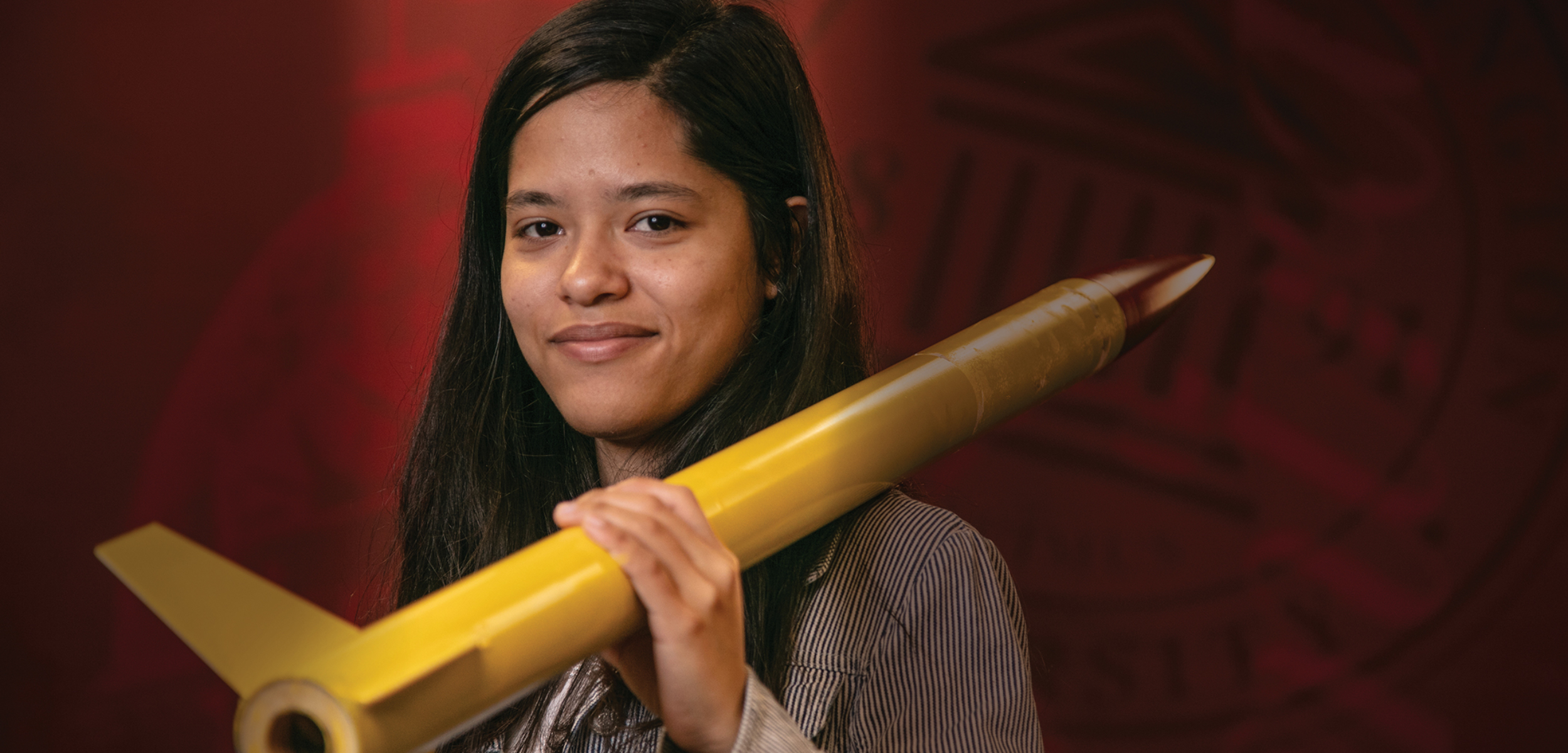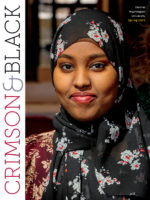
Technology and the other STEM fields are among the fastest-growing industries in the world today. These career paths traditionally are male-dominated, but efforts are underway to bring more women into the mix.
Outreach continues to improve every year, although some people, like CWU senior Kirti Patel, say the technology field still feels like a boy’s club. For example, in her capstone project—making inventory software for a client—she was the only female in her group of five.
“All classes were heavily male-skewed,” said Patel, a computer science major. “I think I was the only female in my first computer science class. That was a surprise to me.”
Regarding the number of people of color represented in technology fields, Patel, who is Indian, believes the situation has improved and is less pronounced than the gender gap.
“I think representation is getting better in the industry,” she said. “I’ve had so many family friends that work in the industry, and that’s what motivated me to get into it. They’re not being treated unequally anymore, so that’s a good start.”
Senior computer science major Emily Bodenhamer said she hasn’t noticed a significant difference in female participation during her time at CWU, saying the number of women in her classes decreased as she advanced further into her program.
“As you progress through the major, the amount of women in the major gets smaller,” she said. “In general, the amount of people gets smaller because computer science is such a hard major.”
FACULTY PERSPECTIVE
Rosemary Salter, a CWU lecturer who teaches new and advancing technologies and technical writing, said she doesn’t typically have many female students in her classes. In her two sections of technical writing during the winter quarter, she only had two females out of 44 students.
“I think we’re just not getting them in … Sometimes I wonder if the word ‘technology’ isn’t scaring away some of the young women,” Salter said. “And yet tech is such a fun, all-encompassing area, so I don’t know if I need to address that or if that is an issue.”
Her observations may be following a trend where women tend to pursue the softer skills versus the more technical areas. Of the 1,219 students in the Information Technology Administrative Management (ITAM) major this school year, about 40 percent (485) are women. Of the 326 computer science majors, only 60 of them—about 18 percent—are women, although that number has increased from 2017-2018 when only 13 percent were women.
Virginia Tomlinson, Central’s new Chief Information Officer, said she has heard anecdotally that women enter into IT at the same rates as men, but they don’t always continue their careers in IT.
“When men would move on to get to the manager positions and those higher IT positions, women seem to change careers sooner,” she said. “They tend to stay in the softer skills—the service desk, design and web, and those areas—instead of highly technical areas like networking and system administration.”
On campus, 32 percent of CWU’s employees in the Information Services department identify as female, Tomlinson said, adding that the statistic doesn’t include IT personnel in other departments.
REACHING GIRLS EARLIER
The limited number of women pursuing computer science is a national issue, and it is one that most colleges and universities are trying to change.
Joell Boast, a computer science teacher at Morgan Middle School in Ellensburg, said reaching girls at a younger age is key to getting them excited about computer science. She has seen a decrease in participation among girls in her computer science classes as they get older.
“I do think the awareness is getting better, but we’re talking about it and addressing it at the college or high school level, and that’s too late,” she said. “The biggest thing we have to solve is reaching our students earlier.”
Boast said there is a misconception where people think you have to be good at math to succeed at computer science.
“You just have to be good at thinking, but what are we doing with younger kids to help them practice thinking?” she said. “And that’s where your project-based learning comes in. It’s a mind shift.”
Boast had an opportunity last year to take a group of middle school girls to Central to work with the CWU Girls Who Code Club. Introducing those students to female role models in the industry also helps inspire interest in STEM, she said.
One program that has been gaining traction among young women in Central Washington over the past four years is Game On! The partnership between CWU, Microsoft Corp., and the Real Madrid Soccer Foundation was developed to teach computer coding and leadership skills and values through the sport of soccer to middle- and high-school students from underrepresented groups. The program started in the Yakima School District in 2016-17 and has since expanded to Ellensburg and Mattawa.
During its first full year, Game On! served 119 students, 32 percent of whom were female. Those numbers grew significantly in 2018-19, when girls made up 49 percent of the 515 students who participated
“We aim to serve underrepresented middle- and high school students from economically disadvantaged communities in Washington state,” noted Manuel Rodriguez, director of the Game On! program. “Our goal is to grow the Game On! program to support high school completion and stronger pathways to college, particularly in the STEM fields.”
Other organizations on campus have hosted events to encourage girls to pursue STEM careers. Last fall, the CWU chapter of Women in Aviation International brought girls ages 8 to 17 to campus to learn about the aviation industry. In addition, CWU’s Center for Excellence in Science and Mathematics Education hosts the Expanding Your Horizons event for girls in fifth through ninth grades. Program manager Dannica Price said the event was canceled this year, but it is expected to return in 2021.
Campus clubs, like the Women in STEM Club promote, support and provide resources for underrepresented female students at CWU. There are women in positions of leadership with the other STEM clubs like Rocket Club, Astronomy Club, and the Society of Physics Students.
Mariannly Marquez, who hails from Maracaibo, Venezuela, said she chose to study physics at Central because she was impressed by the school’s commitment to hands-on learning—especially being able to construct her own rocket.
“I’m really glad I came here. During the beginning of the quarter, we began building our own rockets,” she explained. “We took them to Pasco and we did rocket launches and we got certified [by the National Association of Rocketry] in Level 1 [high power] rocketry. That was a really great experience for me.”
Patel, the computer science major, is president of CWU’s Association of Computer Machinery. Since taking on a leadership role, she has transformed the group into a productive organization where students host internship panels, build their professional portfolios, and work on coding activities.
“I just wish women would see the beauty of computer science, and maybe more of them would join,” Patel said.






comments powered by Disqus